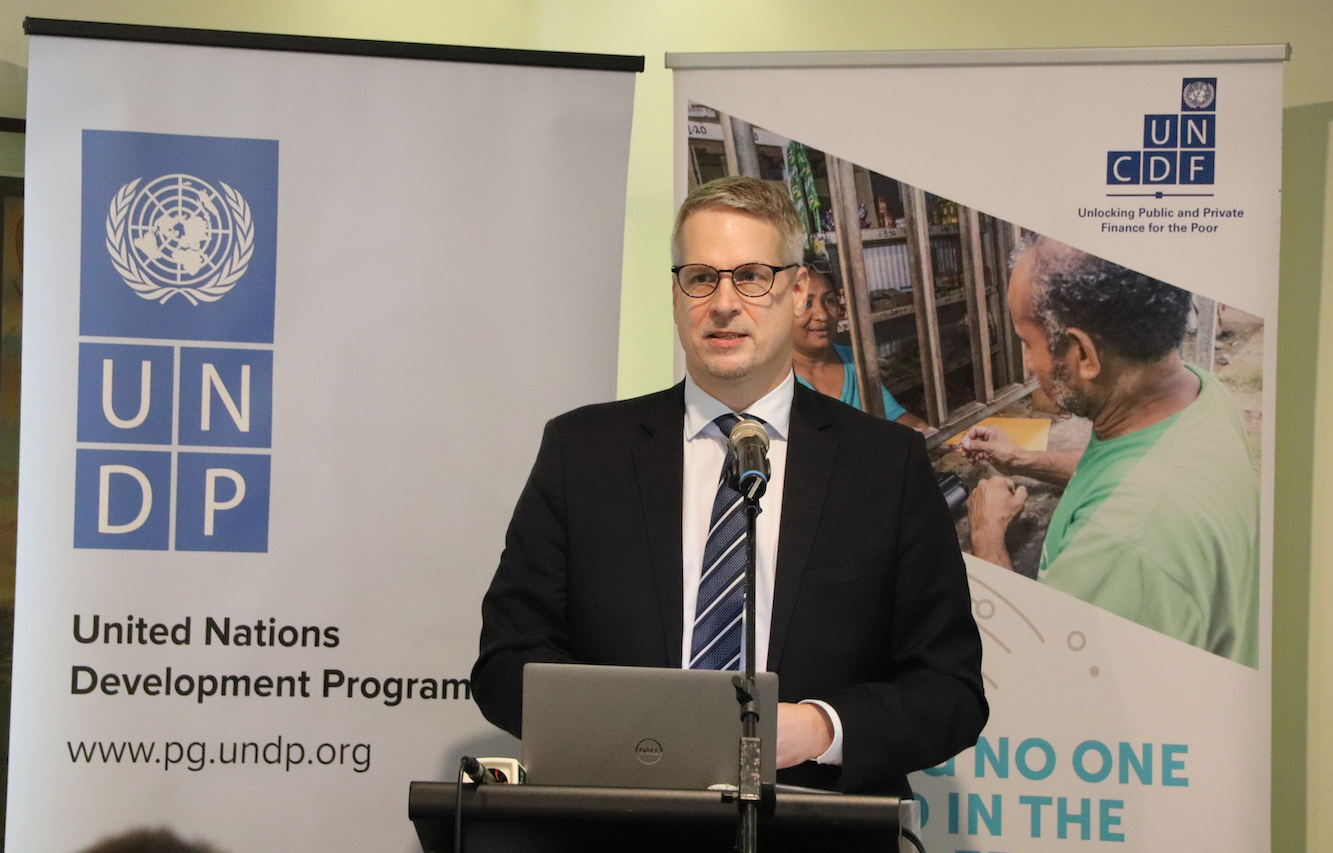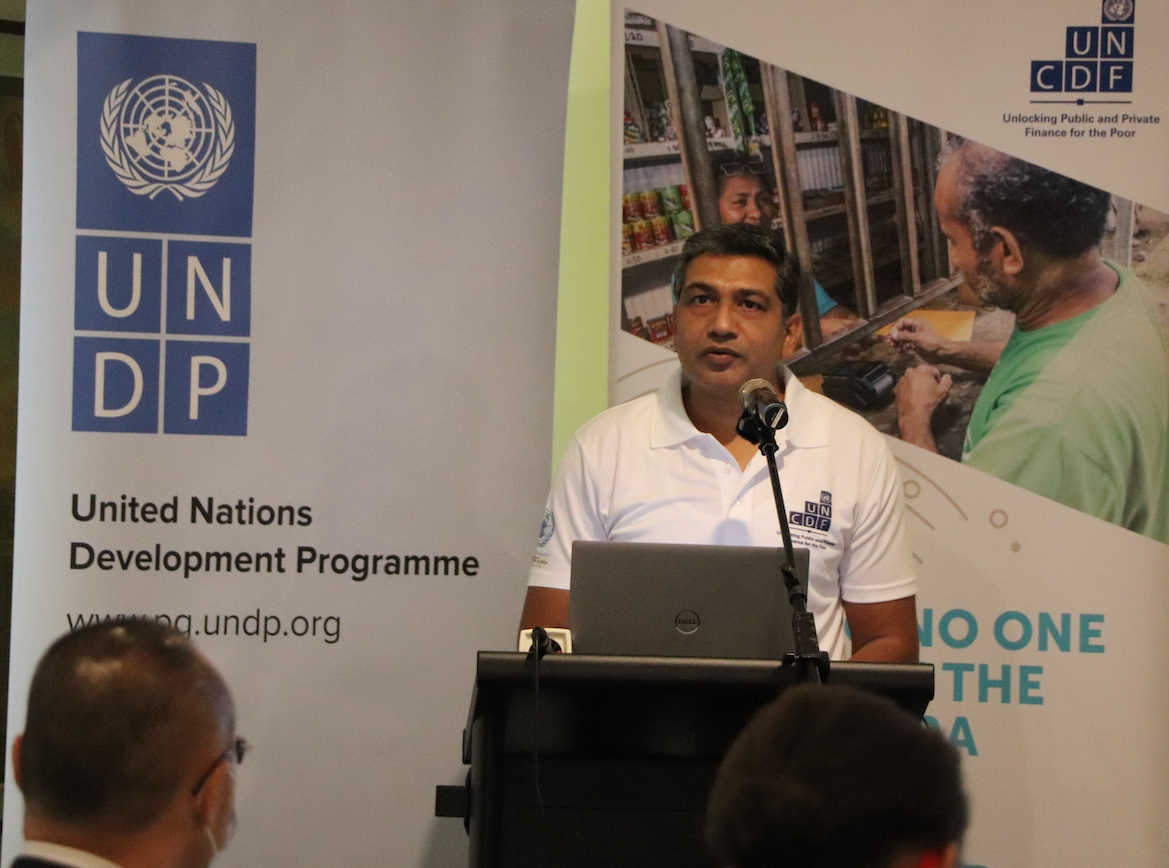Digital and Financial Literacy for Women Entrepreneurs in Papua New Guinea
Author :
Lorraine Basse
KM and Comms Specialist
lorraine.basse@uncdf.org
Tags


On Friday, 6 May 2022, UN Capital Development Fund (UNCDF) with United Nations Development Programme (UNDP) launched the Rapid Financing Facility that will enable women entrepreneurs to access affordable digital financial products and services.
The Rapid Financing Facility takes a multi-pronged approach to address various barriers women entrepreneurs face in the formal and informal sectors. This includes supporting women entrepreneurs to:
- Enhance their business capacity skills
- Understand requirements to pitch at innovation funds
- Know requirements to be able to sell on E-commerce platforms
- Understand process and requirments to gain access to financial products.
The launch saw the signing of the performance-based grant funding agreements with five partners under two UNCDF Funds; the ‘Women’s Entrepreneurship Capacity Building Fund’ and ‘E-Commence Support Fund’. Emstret Holdings, PNGX Markets, Tok Stret Consulting, Westpac and Agbook were selected through a competitive process.
UNCDF Country Lead Jagdeep Dahiya said that “5,000 women entrepreneurs will benefit from digital and financial literacy training before the end of this year.” Mr. Dahiya added that “partners are expected to contribute at least 20% of the total project cost to ensure the services are well developed and embedded in their businesses.”
The project seeks to support the development of digital and financial literacy solutions targeting women-led MSMEs and women entrepreneurs to enhance their financial management and business skills in the country.
UNDP Resident Representative Dirk Wagener said that “the Rapid Financing Facility supports women entrepreneurs by working with financial service providers to promote solutions that are both fitting, suitable and affordable in terms of financial products and services”.
“We know that the informal sector is a large sector that drives the economy, primarily dominated by women here in Papua New Guinea. These women need access to those digital solutions and financial services to suit their needs. And the pandemic has disproportionately impacted women, youth, poor households, informal and self-employed workers and MSMEs who were not ready to meet some of the challenges presented to them”.
Acting Governor of Bank of Papua New Guinea (BPNG), George Awap said, “with the COVID-19 pandemic we all witnessed how important it is to leverage technology and digitization to keep us ticking and bring in new means and ways of doing business. These new things should trickle down to the women and entrepreneurs in the formal and informal sector, which are critical players in our economy”.
Small, Medium, Enterprise Corporation (SMEC) Chairman, Mr. John Pora said, “the MSME space has got a lot of room for growth, and that room for growth will be defined by how we make relevant the programmes, the re-architecture of what building and constructing looks like in terms of citizen participation”.
“Access to finance is one of the difficult areas, and it’s not only the responsibility of the government to provide money or our development partners to facilitate development funds, but it also requires our citizens to step up”.
Additional interventions are planned as part of the project for the year 2022, including the first-ever portfolio guarantee and innovation fund for digital financial services adoption by women entrepreneurs of Papua New Guinea.